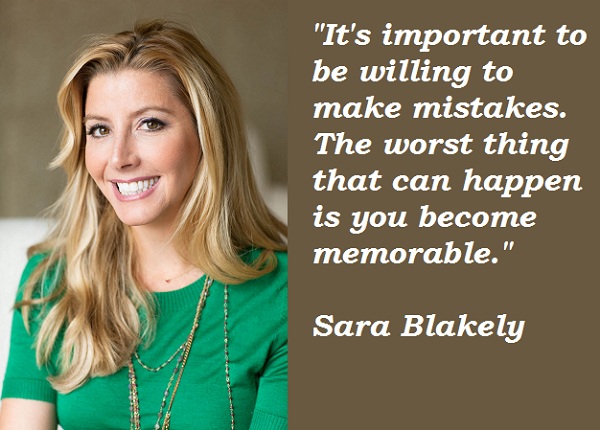Parents’ expectations of their children are pretty straightforward: show respect, practice good hygiene, get As (and maybe some Bs) in school. The mantra is, “Do everything well by practicing and practicing until you get it right.”
But what if getting it right wasn’t the right thing at all? What if failure served your children better?

The Sara Blakely story
Sara Blakely is the founder and CEO of Spanx, which is an American company that designs and produces undergarments called shapewear. She likes to refer to her product as footless pantyhose.
Sara’s career goals didn’t take her in the direction she had originally hoped for. She wanted to be a lawyer, but thanks to her test anxiety, she failed the law school entrance exam.
Many people would have given up, but not Sara. She was used to experiencing failure because her dad had taught her from an early age that failing at something was actually not failing at all. It meant you were trying. When the family convened for dinner, her dad asked everyone, “What did you fail at today?”
Like the others at the dinner table, Sara was supposed to talk about something new she tried that day or that week, and her dad was disappointed if she hadn’t risked failure. The greatest failure of all, she discovered, lay in not trying new things. Sara overcame her fear of failure by confronting it head on. Failure wasn’t a limitation; it inspired new opportunities.
Eventually Sara’s failure at getting into law school would lead to the creation of an expansive business and incredible success.
How fear holds you back
Fear can be paralyzing. It eats energy and creates inertia, making even the smallest and simplest tasks nearly impossible.
If your children experience fear of failure, their motivation shrinks. They begin obsessing about what other students think about them instead of moving forward confidently on their own. Personal ego becomes more important than personal development as self-esteem sinks to low levels.
Ask these questions
Encourage calculated risk-taking and allow for possible failure. Start the failure conversation with your child by asking open-ended conversations that require some deep thought, and more than a simple yes or no.
• How did you fail today/this week?
• Why do you think you failed at it?
• What did you learn from the experience?
• What are your next steps?
Follow up with these steps
It’s been said that if you shoot for the moon and miss, you’ll at least land among the stars.
As hard as it is, encourage the willingness to fail with these simple steps:
• Encourage risk-taking.
• Allow for choices
• Withhold judgment.
A final thought
Sarah learned at a very young age that real failure came from not trying at all. Her willingness to try the unknown has made her the successful billionaire she is today.
How can having the courage to fail move your child forward? We’ll take a look in the next article.